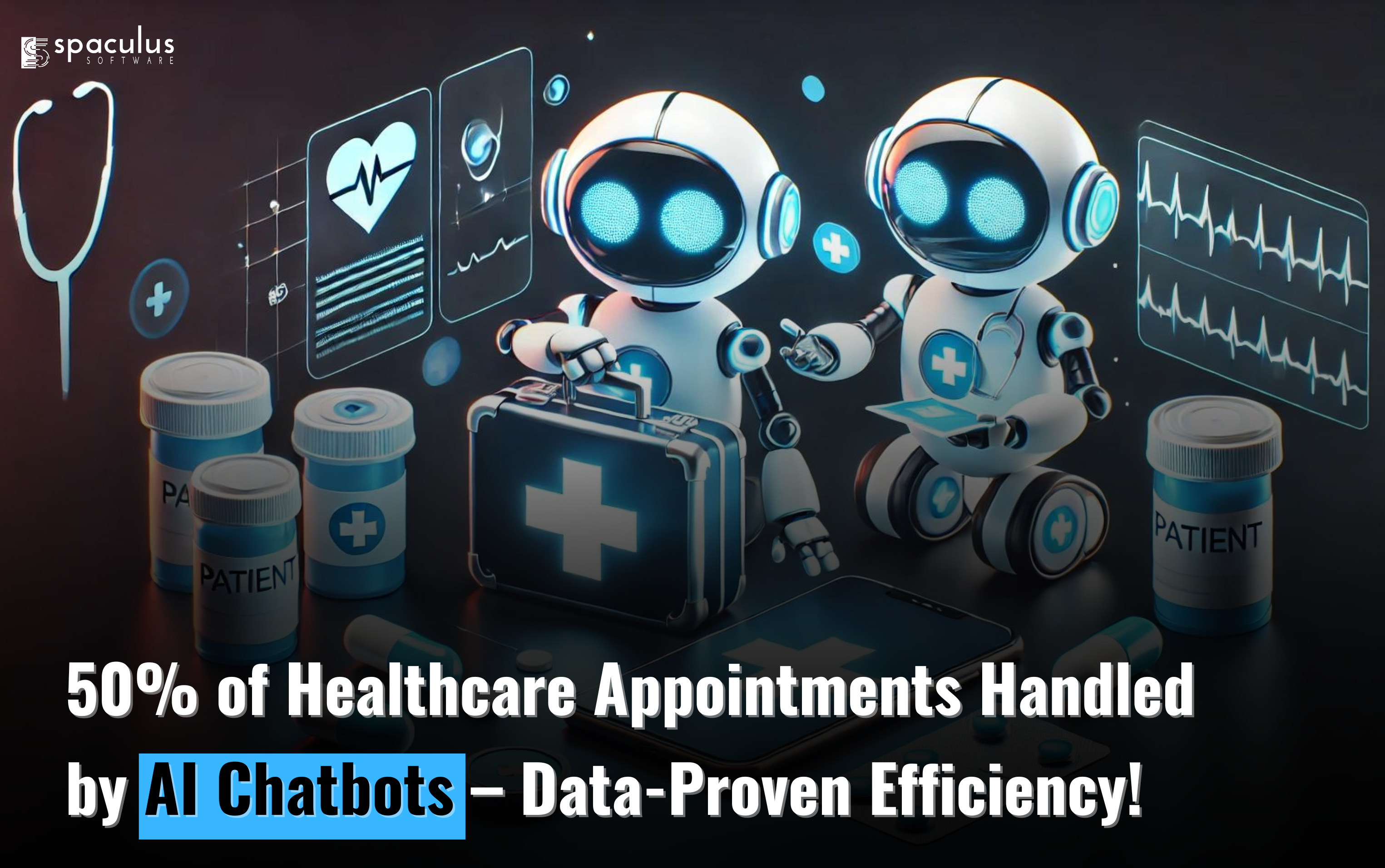
Healthcare can be stressful for both patients and doctors. Patients often feel unsure about their symptoms and don’t know what to do. Doctors are busy with too much paperwork and don’t have enough time for patient care.
Imagine waking up at night with chest pain or seeing your child with a fever. You don’t know if it’s serious, and the doctor’s office is closed. This causes worry. Many people delay seeking help because they are unsure. For doctors, managing so much paperwork takes time away from caring for patients.
AI-powered chatbots are changing this. They give patients instant help, guide them through symptoms, and make appointments easy. For doctors, chatbots summarize reports and handle admin tasks, saving time. This helps patients feel more secure and lets doctors focus more on patient care.
Chatbots are making healthcare easier, giving quick answers to patients and freeing doctors to do what they do best.
When you’re not feeling well, it can be scary to wait for help, especially when the doctor’s office is closed. Many patients feel anxious and unsure about what to do when they need advice late at night or on weekends. AI chatbots provide instant help, anytime.
Example:
A patient feels a sharp pain in their chest at 2 a.m. They ask the chatbot, “I have chest pain, what should I do?”
The chatbot replies:
This real-time guidance helps patients make quick decisions, removing the fear and uncertainty of waiting for office hours. A recent study showed that 78% of people feel more secure having access to a chatbot that can provide advice instantly.
Many patients struggle to book appointments. They may call the clinic and be placed on hold or miss the small window to book their follow-up visit. AI chatbots make it easy to book, change, or cancel appointments without needing to talk to someone.
Example:
A patient needs to see a specialist after receiving lab results. They tell the chatbot, “I need to book a follow-up appointment with Dr. Smith.”
The chatbot responds:
This seamless process reduces the stress of scheduling appointments and ensures patients don’t miss important follow-ups. Data shows that chatbots can reduce missed appointments by up to 35%.
Doctors are often overwhelmed with reading long, complicated medical reports. This takes valuable time away from patient care. AI chatbots can quickly summarize these reports, giving doctors only the key points they need.
Example:
A doctor is reviewing a patient’s health records before a visit. They ask the chatbot, “Summarize the latest blood test results for John Doe.”
The chatbot responds:
This quick summary allows the doctor to focus on what’s most important, freeing up time for patient care. Chatbots help doctors stay on top of crucial information without the risk of missing important details.
Many patients forget to take their medications, especially those who have to take multiple pills every day. Missing doses can lead to serious health problems, but chatbots can send reminders to patients at the right time.
Example:
A patient with diabetes receives a message from the chatbot:
The chatbot checks in again: “Great! Let me know if you have any questions about your medication.” This gentle nudge ensures patients stay on track, reducing the risk of health complications.
According to the World Health Organization, 50% of patients with chronic illnesses don’t take their medication as prescribed. Chatbots can help change that by making sure patients don’t miss their doses.
Patients often feel unsure about their symptoms. Should they wait it out or go to the doctor? This uncertainty can cause anxiety. AI chatbots can ask simple questions and offer advice based on the answers.
Example:
A parent notices their child has a fever and asks the chatbot: “My child has a fever, what should I do?”
The chatbot responds:
This real-time guidance helps parents feel confident in their decisions, removing the stress of not knowing whether to seek medical attention.
Some patients feel overwhelmed by complex healthcare plans. Managing multiple instructions from different doctors can be confusing. AI chatbots can break down care plans into simple steps, making it easier for patients to follow through.
Example:
A patient recovering from surgery asks the chatbot: “What do I need to do for my recovery today?”
The chatbot replies:
This clear, step-by-step guidance helps patients stay on track with their recovery without feeling lost or overwhelmed.
One of the biggest problems in healthcare is poor communication between doctors and patients. Often, patients leave appointments with unanswered questions. AI chatbots can help by answering follow-up questions and offering more information after the doctor’s visit.
Example:
After an appointment, a patient asks the chatbot: “I forgot to ask the doctor about my treatment. Can you help?”
The chatbot responds:
Conclusion
AI-powered chatbots are revolutionizing healthcare by making it more accessible and stress-free for both patients and doctors. From scheduling appointments and offering instant assistance to ensuring timely medication reminders, these chatbots are eliminating much of the confusion and hassle associated with healthcare management.
By collaborating with an AI chatbot development company, healthcare providers can integrate chatbots that deliver real-time support, simplify complex processes, and enhance communication. This not only helps patients feel more confident and informed about their treatment but also frees up doctors to focus on what matters most—delivering quality care.
Studies show that improved communication through tools like chatbots leads to better treatment adherence, ensuring positive outcomes for patients while streamlining healthcare operations.
Artificial Intelligence Insights and Trends